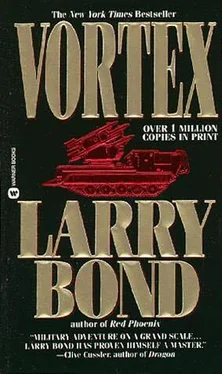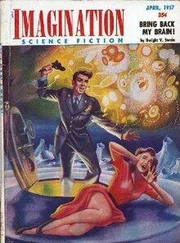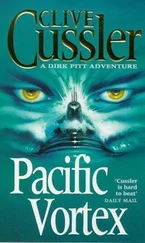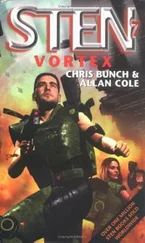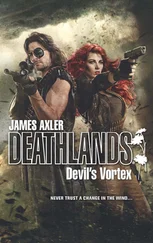Not here. Not at first, anyway. Hawkins and the other three
Americans had shown up at a nighttime rendezvous with local resistance forces, mostly ex-ANC guerrillas now fighting with the Allied side.
Any meeting at night, deep in enemy territory, was risky, and even after almost two weeks of operations in Africa, Jeff was keyed up. They had approached the site, an isolated grove of trees, in single file, with
Ephraim Betalizu, their best scout, in front by fifty meters.
Ephraim had disappeared into the copse and a few minutes later had called out, in Zulu, “All clear.”
Relaxing a little, Jeff had hand-motioned the file of soldiers forward.
He had only taken two steps, though, when he heard thrashing and the sounds of a fight. Breaking into a run, Hawkins sprinted for the trees ahead, weapon ready. He heard shouts, the sound of metal on wood, and then a muffled shot.
Jeff took the final few steps through the trees and saw Betalizu on the ground with three men standing over him. A fourth lay facedown to one side. A pistol lay on the ground near Betalizu’s outstretched hand, and two of the men held AK-47 assault rifles. Both weapons were pointed at the scout, and one man’s pose made Jeff think he had been about to pull the trigger.
Shit. Time to sound American, Jeff thought.
“What the hell is going on here? Ephraim, get up.”
Stiffly, he turned to face his scout’s attackers. Controlling the anger in his voice, he said, “Which one of you is our contact?”
One of the three, one with an AK-47 but not the man ready to fire, lowered his rifle and looked at Jeff. The American wore a standard-pattern U.S. camouflage uniform and green beret, with black plastic insignia. Although Jeff was not fully loaded with combat gear, he Appeared lavishly equipped compared to the guerrilla.
The African wore camouflage pants, a ragged T-shirt, and sandals. A big man, he had a short beard and close-cropped hair, flecked with gray.
“I am George Nconganwe, leader of this cell. You look like the Americans we expected. ” He gestured to Betalizu,
slowly standing up.
“But you have brought this traitor with you. “
Jeff felt himself bristling and tried to fight it.
“If I brought him with me, he is not a traitor. ” Jeff heard the rest of the team coming through the brush behind him.
“I will vouch for every one of my men. “
Jeff’s move was dangerous but necessary. Americans had no political currency in this area, and linking his reputation with that of the Zulus could work either way. Jeff was betting that Cape Town and Durban marked them as friends, not potential oppressors or collaborators.
Even in the weak moonlight, Jeff saw Nconganwe’s eyes move to someone behind him. Hawkins followed his gaze and saw the guerrilla was looking at Dworski, then Lamas.
Jeff introduced the lieutenant as his secondin-command, and then the rest of the team. The idea of an armed white man and a Hispanic being allies seemed to disturb Nconganwe almost as much as the Zulu. Whites were the oppressors. Hispanics were Cubans, first friends, now enemies.
He knew these men were Americans, and technically allies, but a lifetime of struggle made it hard to see past their race.
Jeff cursed his own complacency. Zulu and Xhosa had been historical enemies and also political rivals. Most of the now-shattered ANC’s membership had been Xhosa, while 95 percent of the Inkatha. movement had been Zulu. Inkatha had preached a more conservative line, while the ANC had ties with communist and socialist political groups.
Black South Africans had little experience with the idea of political dialogue. Any difference of opinion in this bloody land was cause for violence. The white government of South Africa had used this difference, and many others, to keep the two strongest opposition groups feuding between themselves. Now, even with the enemy in front of them, it was hard to forget old hatreds.
Dworski and Griffith had tended the fourth man-only knocked down and not shot, thank goodness. Only by being very businesslike had Hawkins
managed to convince Neonganwe to continue with the mission. They still had many kilometers of hostile territory to cover, and a dangerous enemy was looking for them.
Jeff’s original plan had been to place one of the local fighters with
Betalizu on point, but that was now out of the question. Betalizu did not know the area and could not scout alone. Hawkins would have to depend on strangers for his team’s security.
As they had set out, another conflict arose, with neither group willing to bring up the rear. Feeling like a schoolmaster, the American had ordered two separate side-by-side files, with the command group spread among them, keeping the peace.
The rest of the mission, successful but fruitless, had been a continuous string of compromises. Only after Betalizu and Lamas had gone forward together to survey the bridge, under the Boer sentries’ noses, had
Nconganwe said anything good about the Zulu.
They had slept that night in a hide about five kilometers from the bridge. Before sleeping, Nconganwe and Jeff had talked, first about the struggle in South Africa, then about America’s multiracial society. The
Xhosa had trouble with the concepts that made American society work.
Jeff explained his own upbringing. While he had seen and experienced discrimination during his life, there had been nothing like apartheid.
Even more so, American society as a whole seemed committed to the idea of the races living together on an equal basis. This was something few
South Africans, white or black, had actually seen. Nconganwe had trouble accepting that it actually existed.
In African culture, the family and extended family were everything.
Loyalty to one’s clan was far more important than any feeling of nationhood. America had forged her own borders. South Africa’s had been drawn by European colonists, with no thought to the peoples already living there.
Jeff’s own family was important to him, but he thought of himself as an
American, not a Hawkins or a Chicagoan. Some of that was his upbringing, but the American ideals of one man, one vote and the rule of law were a basic part of his beliefs, and his loyalty went to the country that represented those beliefs.
And what nation should the Xhosas or Zulus feel allegiance to? The government was the enemy and the South African nation was a collection of peoples kept deliberately apart. There was no concept of the “melting pot” or a pluralistic society. That much of apartheid had taken root.
A hundred-plus years after the Civil War, Americans were still sorting out race relations. Jeff wondered how long it would take in South Africa.
He and Nconganwe had talked for over an hour, and like most Africans Jeff had talked to, Nconganwe seemed willing to take part on faith, but would have to see the rest for himself. Jeff decided to settle for that.
The following day they had marched home through enemy territory, although the Boers’ grasp on it was weak and fading.
It was rough country, in the foothills of the Drakensberg Mountains. The paths rose and fell, passing through brown hills that broke into green only near a river or stream.
The team was headquartered in Tlali, a large village whose chief had been delighted to host Hawkins and his team, since the armed Americans would protect him from the lawless bands that now preyed on the population.
Tlali’s population was Sotho, another tribe common in South Africa, but one not as antagonistic to the Zulu.
The Sotho had actually managed to maintain their own independent nation within the territory of South Africa, mostly by virtue of being on top of an escarpment, surrounded by steep walls, Lesotho was still in the thrall of South African power, but it was also a source of pride. Tlali lay outside its borders, but still maintained the cultural links.
Читать дальше
